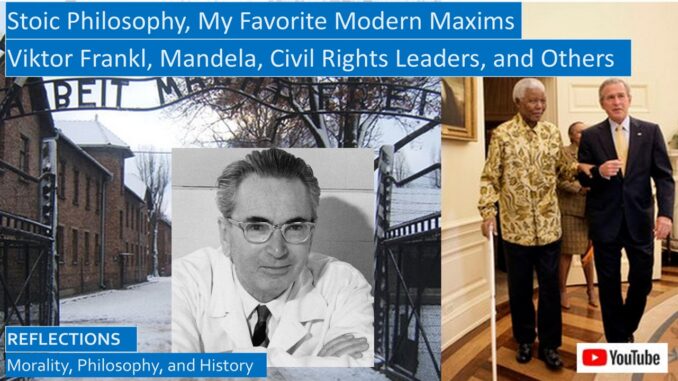
Today we will reflect on my favorite maxims from modern Stoic philosophers, many which mirror the quotes by the ancient Stoic philosophers.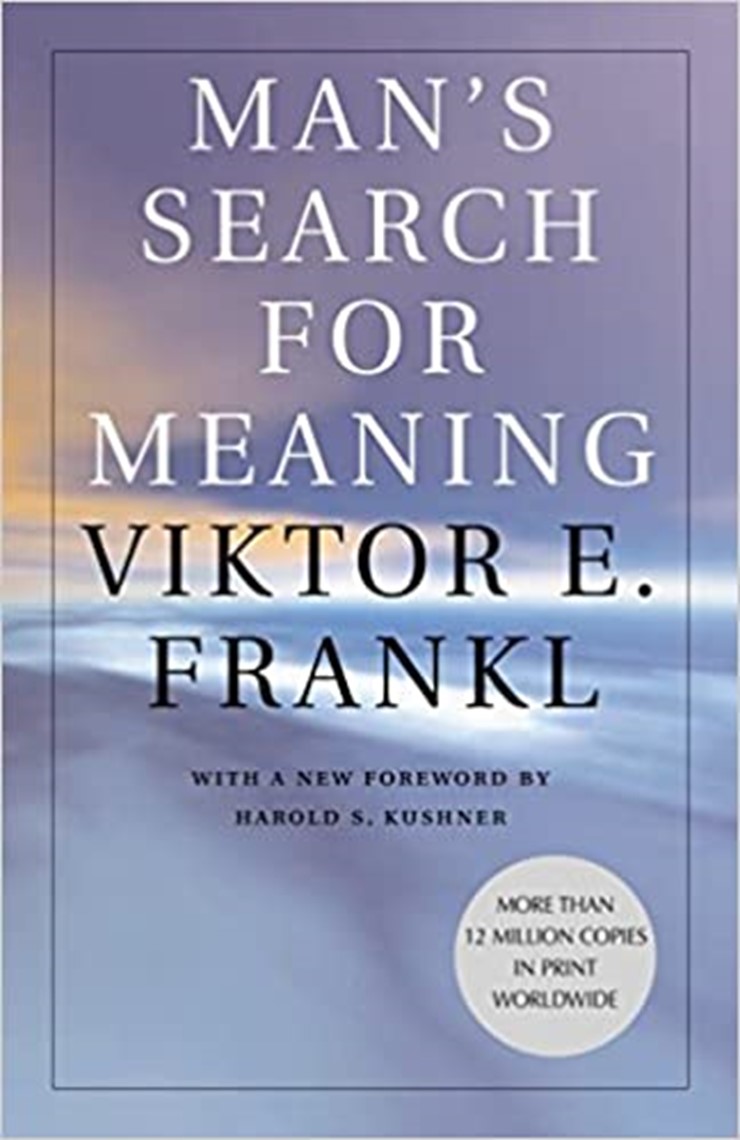

YouTube Video for this blog: https://youtu.be/u9zyOG7dwZs
YouTube script with more book links: https://www.slideshare.net/slideshows/modern-stoic-philosophers-my-favorite-maxims-viktor-frankl-nelson-mandela-and-others/266462291
STOIC PHILOSOPHY IN THE MODERN WORLD
We have several stoic quotes from two modern figures, one a political leader, the other a psychologist. Both were imprisoned, Nelson Mandela spent decades in prison for opposing apartheid, and Viktor Frankl was imprisoned in the Auschwitz work camp, daily facing death in the Holocaust. These maxims, and some maxims from other Civil Rights leaders, have been covered in our prior videos, but the other maxims are new for this Channel.
We have previously reflected on our Favorite Maxims from Roman Stoic Philosophers, and also Favorite Maxims from Greek Stoic and Cynic Philosophers.
Major Roman Stoic Philosophers, My Favorite Maxims: Epictetus, Rufus, Seneca & Marcus Aurelius
https://seekingvirtueandwisdom.com/major-roman-stoic-philosophers-my-favorite-maxims-epictetus-rufus-seneca-marcus-aurelius/
https://youtu.be/E0qQgqGkoOE
Greek Stoic and Cynic Philosophers: My Favorite Maxims: Heraclitus, Antisthenes, Diogenes, and Zeno
https://seekingvirtueandwisdom.com/greek-stoic-and-cynic-philosophers-my-favorite-sayings/
https://youtu.be/rq3oRftjM4c
NELSON MANDELA: FROM PRISON TO PRESIDENCY
Nelson Mandela read the works of the stoic philosophers during his years spent in a South African prison for his struggles against apartheid. He was not angry or bitter with his South African jailers, many of them were fundamentalist Afrikaner churchgoers who were paradoxically both devout Christians and supporters of the brutal apartheid regime.
Mandela echoes Epictetus when he writes: “Prison and the authorities conspire to rob each man of his dignity. No man or institution can rob me of my dignity because I refuse to part with it for any price or pressure.”
Bill Clinton tells us in the foreword, “I once asked Mandela to describe his long walk from prison to the presidency. ‘When you are young and strong,’ he told me, ‘you can stay alive on hatred. And I did, for many years.’”
“Then one day after years of imprisonment, physical and emotional abuse, and separation from his family, Mandela said, ‘I realized that they could take everything from me except my mind and my heart. They could never take these from me. I still had control over my mind and my heart. And I decided never to give them away.’”
During his years in prison, Nelson Mandela learned the Dutch Afrikaner language spoken by his white jailers so he could talk to them in their native tongue. Later, when he was negotiating his release from prison to replace the apartheid with a democratic government, he compared the freedom struggles of the Dutch Afrikaner settlers when they rebelled against the British crown to the current struggles of the black ANC Party against apartheid, while speaking in their native Afrikaner tongue rather than English. Mandela sought reconciliation between the black and white Afrikaner citizens of South Africa, especially after he was elected President.
This was Mandela’s message to his fellow blacks during his presidential campaign after Apartheid was abolished: “Do not expect to be driving a Mercedes the day after the election or be swimming in your own backyard swimming pool. Life will not change dramatically, except that your self-esteem will increase, and you will become a citizen in your own land. You must have patience.”
In the closing pages of his autobiography Mandela shares some comforting thoughts, “No one is born hating another person because of the color of his skin, or his background, or his religion. People must learn to hate, and if they can learn to hate, they can be taught to love, for love comes more naturally to the human heart.”
Mandela remembers: “Even in the grimmest times in prison, when my comrades and I were pushed to our limits, I would see a glimmer of humanity in one of the guards, perhaps just for a second, but it was enough to reassure me and keep me going. Man’s goodness is a flame that can be hidden but never extinguished.”
Mandela is ever the Stoic in these closing words of his autobiography, “A man who takes away another man’s freedom is a prisoner of hatred, he is locked behind the bars of prejudice and narrow-mindedness. I am not truly free if I am taking away someone else’s freedom, just as surely as I am not free when my freedom is taken from me. The oppressed and the oppressor alike are robbed of their humanity.”
Mandela as a Reluctant Revolutionary, Blog 2
http://www.seekingvirtueandwisdom.com/mandela-as-a-reluctant-revolutionary-blog-2/
Mandela, Decades Spent In Prison, blog 3
http://www.seekingvirtueandwisdom.com/mandela-decades-spent-in-prison/
Mandela Talking with the Enemy and Freedom, Blog 4
http://www.seekingvirtueandwisdom.com/mandela-talking-with-the-enemy-and-freedom-blog-4/
Nelson Mandela: From Prison to the Presidency of South Africa
https://youtu.be/X3UnZYeE_kA
VIKTOR FRANKL: SURVIVING AUSCHWITZ WITHOUT BITTERNESS
Although many scholars note the many similarities between Frankl and the Stoics, Frankl does not have any direct references to Stoics in his famous Man’s Search for Meaning, his story of surviving the Auschwitz Work Camps in the Nazi Holocaust. Also, his psychological system is called Logotherapy, after the Greek word for Logos, or Word. But his Logotherapy is very similar to the modern CBT, or Cognitive Behavioral Therapy, which is inspired by Stoicism.
Rabbi Kushner in the Foreword to the book said that “Frankl saw three possible sources for meaning, in work, doing something significant; in love, caring for another person; and in courage during difficult times.”
No matter how dire your circumstances, you can always be kind to those around you. Frankl tells us, “Man’s search for meaning is the primary motivation in his life and not a ‘secondary rationalization’ of instinctual drives.”
What is the meaning of suffering? Frankl posits that “man’s main concern is not to gain pleasure or to avoid pain but rather to see a meaning in his life. That is why man is even ready to suffer, on the condition that his suffering has meaning.”
Frankl tells us the most important lesson he relearned in the Nazi work camps: “The truth is that love is the ultimate and highest goal to which man can aspire.” In the suffering of the camps, Frankl tells us that he realized that “the salvation of man is through love and in love. I understood how a man who has nothing left in this world still may know bliss, be it only for a brief moment, in the contemplation of his beloved.”
Viktor Frankl tells us, “The experiences of camp life show that man does have a choice of action. Apathy can be overcome; irritability can be suppressed. Man can preserve a vestige of spiritual freedom, of independence of mind, even in terrible conditions of psychic and physical stress.”
Frankl believes that “the true meaning of life is discovered in the world rather than in man or in his own psyche, as though it were a closed system.” “The more one forgets himself, by giving himself to a cause or another person to love, the more human he is and the more he actualizes himself.”
What is the meaning of love? Frankl suggests, “Love is the only way to grasp another human being in the innermost core of his personality. No one can become fully aware of the very essence of another human being unless he loves them.”
“By his love he is enabled to see the essential traits and features in the beloved person;” both their obvious strengths, and also their potential strengths, strengths hidden that blossom with encouragement, like flowers that bloom after it rains.
Likewise, Frankl reminds us that romantic love is not merely sex, but healthy intimacy is an expression of love. Frankl states, “Pleasure is, and must remain, a side-effect or by-product” of romantic love, “and is destroyed and spoiled to the degree to which it is made a goal in itself.”
Frankl decries that “our current mental hygiene philosophy stresses the idea that people ought to be happy, that unhappiness is a symptom of maladjustment. Such a value system means that the burden of unavoidable unhappiness is increased by unhappiness about being unhappy.”
Frankl explains, “No instinct tells man what he has to do, no tradition tells man what he ought to do; sometimes man does not even know what he wishes to do. Instead, he either wishes to do what other people do, he seeks to conform; or he does what other people wish him to do, which can lead to totalitarianism.”
Dr Winslade continues, “Frankl was deeply committed to the idea that even a vile Nazi criminal or a seemingly hopeless madman has the potential to transcend evil or insanity by making responsible choices.”
Viktor Frankl, Man’s Search For Meaning, His Life in a Nazi Concentration Camp in WWII
http://www.seekingvirtueandwisdom.com/viktor-frankl-mans-search-for-meaning-his-life-in-a-nazi-concentration-camp-in-wwii/
https://youtu.be/O-YtC9qGWPI
Viktor Frankl’s Logo-therapy, Man’s Search For Meaning in Life, Love, and Suffering
https://seekingvirtueandwisdom.com/viktor-frankls-logo-therapy-mans-search-for-meaning/
https://youtu.be/1nTYlhDUJh8
INSPIRATION FROM AMERICAN CIVIL RIGHTS LEADERS
We reviewed our reflections on the civil rights leaders, they have many interesting quotes on the civil rights struggle and the circumstances blacks faced in the Jim Crow days, and also some stoic reflections. We don’t recall any historical mention of these civil rights leaders studying the stoic philosophers in particular.
Frederick Douglass, the black abolitionist, was once forced, because of his color, to ride in the baggage car of the train. When some of the white passengers commented on how he should not have been degraded in this manner, he replied, “They cannot degrade Frederick Douglass. The soul within me no man can degrade. I am not the one who is being degraded on account of his treatment, but who are inflicting it upon me are those who degrade themselves.”
Booker T Washington observed: “Experience has taught me, in fact, that no man should be pitied because, every day in his life, he faces a hard, stubborn problem, but rather that it is the man who has no problem to solve, no hardships to face, who is to be pitied.”
Booker T Washington notes that “he used to sympathize with colored people who were narrow and bitter towards white people. As I grew older” I noticed “that they did not get anywhere, that their bitterness and narrowness toward the white man did not hurt the white man or change his feeling toward the colored race, but that, in almost every case, the cherishing of such feelings” hurt the colored man more than the white man.
WEB Du Bois tells us that “one thing I avoided, and that was envy. I tried to give the other fellow his due even when I disliked him personally and disagreed with him logically. It was a point of honor to me never to refuse appreciation to one who had earned it, no matter who he was.”
Clarence Darrow said, “No other offense has ever been visited with such severe penalties as seeking to help the oppressed,”
and Walter Rauschenbusch,
“The championship of social justice is almost the only way left open to a Christian nowadays to gain the crown of martyrdom.”
Martin Luther King concluded that “The most dangerous criminal may be the man gifted with reason but with no morals.”
During the Montgomery Bus Boycott, Martin Luther King addressed the crowd: “We do not advocate violence. We want to love our enemies. We must love our white brothers no matter what they do to us.”
We also reflect on several speeches by the three generations of leading black leaders, including Frederick Douglass, abolitionist, Booker T Washington, founder of Tuskegee Institute, and WEB Du Bois, co-founder of the NAACP.
Three Generations of Leading Black Leaders, Frederick Douglass, Booker T Washington, and WEB Du Bois
https://seekingvirtueandwisdom.com/three-generations-of-leading-black-leaders-frederick-douglass-booker-t-washington-and-web-du-bois/
https://youtu.be/DAEg463i-Tc
We also reflect on the relatively short I Have a Dream speech by Martin Luther King, and compare his Letter from a Birmingham Jail to Hannah Arendt’s essay on the Banality of Evil, her study of Adolph Eichmann, the Nazi bureaucrat who administered the Nazi Holocaust death and work camp system.
Martin Luther King, I Have a Dream Speech, March on Washington DC, Biography Chapter 8
https://seekingvirtueandwisdom.com/martin-luther-king-i-have-a-dream-speech-march-on-washington-dc-biography-chapter-8/
https://youtu.be/IJ64y3nQA4Q
Comparing MLK’s Letter from Birmingham Jail with Hannah Arendt’s Banality of Evil in Nazi Germany
http://www.seekingvirtueandwisdom.com/comparing-martin-luther-kings-letter-from-the-birmingham-jail-with-hannah-arendts-the-banality-of-evil/
https://youtu.be/PqFAUEXbi8k
Martin Luther King, Summary of Biography by David Levering Lewis
https://seekingvirtueandwisdom.com/martin-luther-king-summary-of-biography-by-david-levering-lewis/
https://youtu.be/XtdVGx2C3Cc
American Civil Rights History: Yale Lecture Notes
http://www.seekingvirtueandwisdom.com/american-civil-rights-history-yale-lecture-notes/
Early Civil Rights Era, Through World War II Era: Yale Lecture Notes
https://youtu.be/weGmYOe0Lyg
Civil Rights Era, Sixties and Beyond: Yale Lecture Notes
https://youtu.be/GQesHoV5IdI
OTHER MODERN STOIC REFLECTIONS
Many modern citizens who admire Stoic philosophy think it affirms the principles of Buddhism, and some modern Stoics are skeptical about Christianity. This is understandable, but the reality is that Stoicism deeply influenced early Christianity, particularly the Eastern desert monastics, who in turn influenced the Western monasticism of St John Cassian and St Benedict. We also reflect on how the ancient warrior culture influenced both Judaism and Christianity in our Reflections on our Channel Philosophy.
Our Reflections on Morality, Philosophy, and History: Ancient and Modern Classics
http://www.seekingvirtueandwisdom.com/our-philosophy-for-this-blog-reflections-on-ancient-and-modern-classics/
https://youtu.be/Si0TsO5bNr0
Many ancient Stoic philosophers speak interchangeably of Zeus and the monotheistic God, though many scholars posit that Zeus is the henotheistic God, since the Stoics do not deny the existence of the pagan gods, but rather view Zeus as representing all the gods. Many of the Stoic maxims are so similar to passages in the Gospels and Epistles that I quote the Stoics, since so many people close their ears when they hear bible verses.
Although many ancient and modern philosophers distinguish between Stoicism and Platonism, including Marcus Aurelius, they both primarily emphasize moral ethics. Whenever Plato reflects on justice, he is reflecting on how we should love our neighbor. For example, when Robin Waterfield translates Plato’s Republic, he renders the Greek word for justice as morality.
Why don’t the Roman Stoics discuss justice as much as Plato? In the direct Radical Democracy of Athens, the citizens served on the juries and passed the laws, which meant that ordinary citizens participated in rendering justice. This is why Socrates sought to educate ordinary citizens on justice. But in the Roman Empire, the totalitarian Emperors and their servants were responsible for the administration of justice, the ordinary citizens no longer directly influenced the administration of justice. But that is not the case in modern America and most democracies, many ordinary citizens serve on juries and vote for many political officials, local and national. Justice should be our concern.
You can make a strong argument that Stoicism, like Judaism and Christianity, is founded on the two-fold Love of God and neighbor, that you should Love God with all your heart and all your soul and all your mind and all your strength and love your neighbor as yourself. Plus, we have the St Maximus the Confessor corollary, that we should be eager to forgive our neighbor.
Hillel and Jesus, Reflections on Rabbi Telushkin’s Observations
http://www.seekingvirtueandwisdom.com/hillel-and-jesus-reflections/
Comparing Hillel and Shammai to Jesus
http://www.seekingvirtueandwisdom.com/comparing-hillel-and-shammai-to-jesus/
More Stories and Sayings of Hillel and Shammai
http://www.seekingvirtueandwisdom.com/more-stories-and-sayings-of-hillel-and-shammai/
Jesus, Hillel, and Shammai, Loving God and Neighbor
https://youtu.be/ygxn2qqGnOI
We learn this from the Prayer of St Ephrem:
O Lord and Master of my life,
take from me a spirit of despondency,
sloth, love of power, and idle talk.
But give to me, your servant,
a spirit of sober-mindedness,
humility, patience, and love.
Yes, O Lord and King,
grant me to see my own sins
and not to judge my brother,
since you are blessed to the ages of ages.[1]
Amen.
The Church Fathers teach us that instead of giving yourself a break and judging your neighbor, you should instead judge your own failings and give your neighbor a break.
It is far better to think the best of someone and be mistaken than to think the worst of them and be mistaken. When you think the best of your neighbor, then you bring out the best in him. Think the worst of him, and he may be drug down.
Everyone we meet, everyone who is part of our lives, should be slightly better people because they met us, and because we are part of their lives.
The wise man of compassion lives a life of purposeful naivety. Others may have hurt us in the past, but we must presume those we know today will not.
If you seek to live a godly life, often you will be happy, but sometimes not.
If you seek to live a godly life, you need to ponder and study philosophy and morality, so you are not deceived either by the deceiver’s deceits, nor are you deceived by the preponderant prejudices of your culture.
God has a plan for you, regardless of your situation or failings. The plan is simple, be kind to someone tomorrow. Or better yet, be kind to everyone you meet tomorrow. What plan is more important than this?
When someone close hurts you, or is cruel to you, they may be instead instinctually responding to someone who hurt them long ago, or to someone who hurt their parents, who taught their children not to trust those who say they love them.
Anger should be rare and deliberate; you should only permit yourself to be angry for the best motives. Your neighbor will recognize your anger only if you are rarely angry.
If you want to have a happy marriage, remember the After Five rule: the woman is always right. The corollary for work is the Before Five rule: the boss is always right.
Shouting falsehoods on the rooftops loudly, passionately, repeatedly, persistently, does not make lies true. Likewise, employing attorneys to legitimize falsehoods does not make them true.
The major difference between a slave and an employee is that an employee can choose his master, plus an employee is paid far better. We should work diligently realizing that Jesus is our true boss.
A minimum wage employee is a wage slave.
FDR in his New Deal proclaimed that anyone who works a forty-hour week, regardless of how menial his job, is entitled to a wage that will enable him to adequately feed, clothe, and house his family with dignity.
Jordan Peterson reminds us that not all minimum wage employees are lazy, lacking initiative. There are many employees with below-average capabilities who can only qualify for minimum wage jobs.
Christians should show compassion towards the less fortunate in our society. Christians should not assume that the poor are responsible for their own poverty.
Cruelty is not the point of Christianity.
If you are young and do not possess a greedy soul, seriously consider a helping profession.
If you are weary of trying your best at work, but feel like you are not valued, and people do not listen to you and take advantage of you, always remember that your boss always remembers and encourages you every payday. This maxim is more effective when you insert your boss’ name.
If you are weary of people mistreating you, taking advantage of you, and not appreciating you, remember one day you will go to a place where everyone is always kind, appreciative, and friendly. But once you start singing with Elvis, you cannot return.
Financially successful consultants always tell their clients what they want to hear.
One benefit of drawing social security is you are no longer obligated to be a success.
You know you are having a bad day when you talk to yourself, and you feel like you are being ignored.
You should live healthy and never smoke, because everyone who smokes eventually dies, without exception.
Remember that a plane ticket is only a promise to fly you to a destination sometime in the future. The cost of the airlines striving towards a zero-mortality rate is occasional delays.
We will close with what we can learn from Sunday liturgy.
In their Liturgy, the Orthodox pray to God that they not sin today. Tomorrow is another day.
In their Liturgy of the Eucharist, the Catholics pray:
Lord, I am not worthy
that you should enter under my roof,
but only say the word
and my soul shall be healed.[2]
[1] https://en.wikipedia.org/wiki/Prayer_of_Saint_Ephrem
[2] https://www.togetheratonealtar.catholic.edu.au/receive/liturgy-of-the-eucharist/

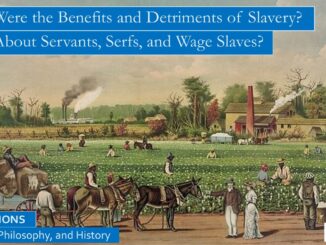
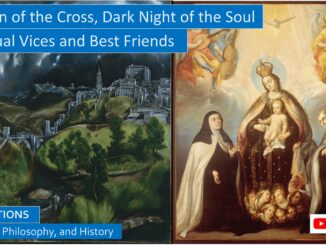
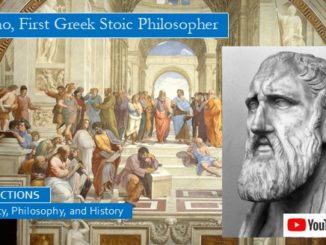
Be the first to comment